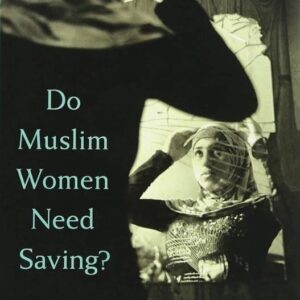Many Western feminists believe that agency is the key to women’s advancement. However, Palestinian-American anthropologist Lila Abu-Lughod deconstructs this Western value to show that it is not a universal ideal. Drawing from current events, anthropological observation, and personal experience, Abu-Lughod investigates how Western assumptions about gender have led to a problematic crusade to save Muslim women.
Abu-Lughod opens the book with a conversation she had in a southern Egyptian village with a woman named Zaynab. As they discussed the topic of gender, Abu-Lughod remarked that many Westerners believe that Islam oppresses women. Zaynab was stunned by this suggestion. Although she agreed that women in Egypt are suffering, she argued that this has little to do with religion — rather, she identified the government and its economic policies as the real oppressors. Abu-Lughod decided to write Do Muslim Women Need Saving? to help Western audiences better understand the perspectives of women like Zaynab.
In the process, Abu-Lughod critiques international women’s rights campaigns, which may unthinkingly export Western values onto non-Western societies. Western women tend to see freedom as the ultimate form of female empowerment. However, a focus on personal choice does not translate well to a collective society like the Middle East, where each person’s sense of self arises from their connections with others. For Muslim women, things like faith and service to the community may be more important than individual agency. Ultimately, Abu-Lughod suggests that the emphasis on “women’s rights” may not truly include them.
Abu-Lughod spends much of the book exploring Western myths about Muslim women. For example, she analyzes the gendered rhetoric that justified the 2001 invasion of Afghanistan. Afghan women — referred to as “women of cover” by George Bush (29) — were portrayed as mute and powerless, waiting for America to save them from an oppressive religion.
Abu-Lughod also examines Western coverage of honor crimes in the Middle East. Books about this issue, with sensationalized titles like Daughters of Shame and Honor Lost, became instant bestsellers in the US by appealing to stereotypes about Muslim women. Nevertheless, these books have come under scrutiny for misrepresenting and even fabricating information.
Even when tackling these complex issues, Do Muslim Women Need Saving? remains engaging and easy to understand, including for students who may have never encountered anthropology or gender studies before. It is a powerful read that will open readers’ eyes to new understandings of gender, both in the United States and abroad.
Discussion Questions:
- Is having choice the only way to evaluate women’s status in a society? How else might we define women’s progress?
- What do you think about the movement of “Islamic feminism” which Abu-Lughod describes? What about more economic approaches to helping women? What do you think is most effective?
- Abu-Lughod criticizes the West’s obsession with “saving brown women from brown men,” but this doesn’t mean that we should ignore the oppression that occurs (33). How can we stand up to discrimination against Muslim women without reinforcing Orientalism?


